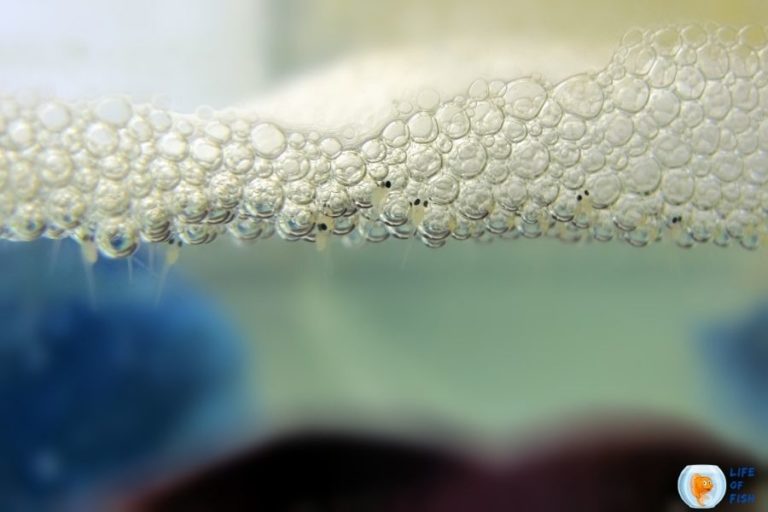Betta Eggs On Bottom Of Tank
Betta eggs on the bottom of tank can present quite a conundrum for fish keepers. Whether you're new to the hobby or a seasoned veteran, dealing with the aftermath of spawning can be overwhelming. Let's dive into the world of betta eggs on the bottom of the tank and explore some solutions to make the process a little less stressful.
Pain Points
When betta fish lay their eggs on the bottom of the tank, the most significant obstacle for fish keepers is the fear of the eggs not hatching. A lack of experience dealing with eggs leads to unease about the entire process, making it a difficult situation to handle. Even if the eggs do hatch, many novice aquarists panic at the thought of raising a large number of fry successfully. It becomes a challenge to balance the expenses, time, and effort required for a successful hatch and raise.
Betta Eggs on the Bottom of Tank - Target
The primary goal of betta eggs on the bottom of the tank is to hatch the eggs and raise the fry successfully. Additionally, the fish keeper should aim to minimize the stress and damage to the eggs during the process.
Main Points
Successful hatching requires a few critical components, including water quality, temperature, and water flow. Once the eggs have hatched, it's essential to ensure that the fry have ample space, nutrition, and clean water. Aim to provide a suitable substrate for the eggs to help them survive. Be careful not to suck the eggs into the filter system while cleaning. Patience and attention to detail are critical components of this process.
Betta Eggs on the Bottom of Tank - Personal Experience and Explanation
When I first encountered eggs on the bottom of my betta tank, I was ecstatic! My beloved fish were breeding, and I felt like a proud parent. However, that excitement soon turned to panic when I realized I had no idea what to do next. I scoured the internet for information and found a wealth of knowledge. I learned that betta fish should have a suitable place to lay their eggs, like a leaf or a spawning cone, to prevent the eggs from getting stuck on the bottom of the tank. Water temperature, quality, and flow are essential elements in the process, too. Once the fry hatched, I made sure they had space, nutrition, and clean water to thrive.

If you find yourself in a similar situation, remember to be patient and attentive throughout the process. Ensure that the eggs have a suitable substrate, and monitor water quality, temperature, and flow closely. With a little persistence and patience, the eggs should hatch with ease.
Water Changes
Increasing water changes during this process is essential. Also, ensure that the water temperature matches the parents' preferences, and water flow should be minimal to prevent the eggs from moving around the tank.

Feeding Betta Fry
Betta fry need to be fed micro worms or infusoria, then gradually move on to brine shrimp nauplii, and when they are bigger, they can begin eating finely ground up pellets or flakes. However, feeding in excess could lead to a nitrate spike, which is why it's essential to monitor water parameters regularly.

Handling Fry
Handling fry can be tricky, and going overboard could cause fatalities. Overcrowding the fry into one small space, for instance, could lead to aggression and fins getting nipped. Similarly, feeding the fry obsessively to increase their growth could have an adverse effect on the water parameters and cause ammonia spikes
Personal Experience and Explanation
After hatching, the fry will require a small tank with the right conditions for growth. It's essential to feed them correctly and avoid overcrowding. Once they grow up, you can move them to a regular-sized aquarium and enjoy them as beautiful pets

Question and Answer
Q: How Long Does it Take for Betta Eggs to Hatch?
A: Betta eggs typically hatch between 24 and 48 hours after fertilization.
Q: Can You Move Betta Eggs to Another Tank?
A: It's not recommended to move betta eggs as doing so can damage or kill the eggs.
Q: What is the Ideal Water Temperature for Betta Eggs to Hatch?
A: The ideal temperature for betta eggs to hatch is 78-80℉ degrees.
Q: What Type of Water Flow is Appropriate for Betta Eggs?
A: Gentle water is appropriate for betta eggs as a significant flow could damage or move the eggs.
Conclusion
Betta eggs on the bottom of the tank require proper management, attention to detail, and patience. Water quality, temperature, and flow are essential elements in the process. Suitable substrate, regular cleaning, and attentive feeding are crucial to ensure the eggs hatch successfully. Once the fry have grown up, they can be moved to a larger tank and become a lifelong companion.
Gallery
Fish, Entertainment, And Ways To Make Money: October 2012

Photo Credit by: bing.com / cupang ikan telur nest berapa fish betta
How Do Betta Fish Eggs Get Fertilized - BETTAKUS

Photo Credit by: bing.com / betta fertilized eventually sickly brood outcome
Betta Eggs Hatching (Just Betta) - YouTube

Photo Credit by: bing.com / eggs betta hatching just
How To Tell If Betta Eggs Are Fertilized? | 12 Unheard Facts

Photo Credit by: bing.com / betta fertilized unfertilized unheard egg
Betta Eggs On Bottom Of Tank - BETTAKUS

Photo Credit by: bing.com / betta